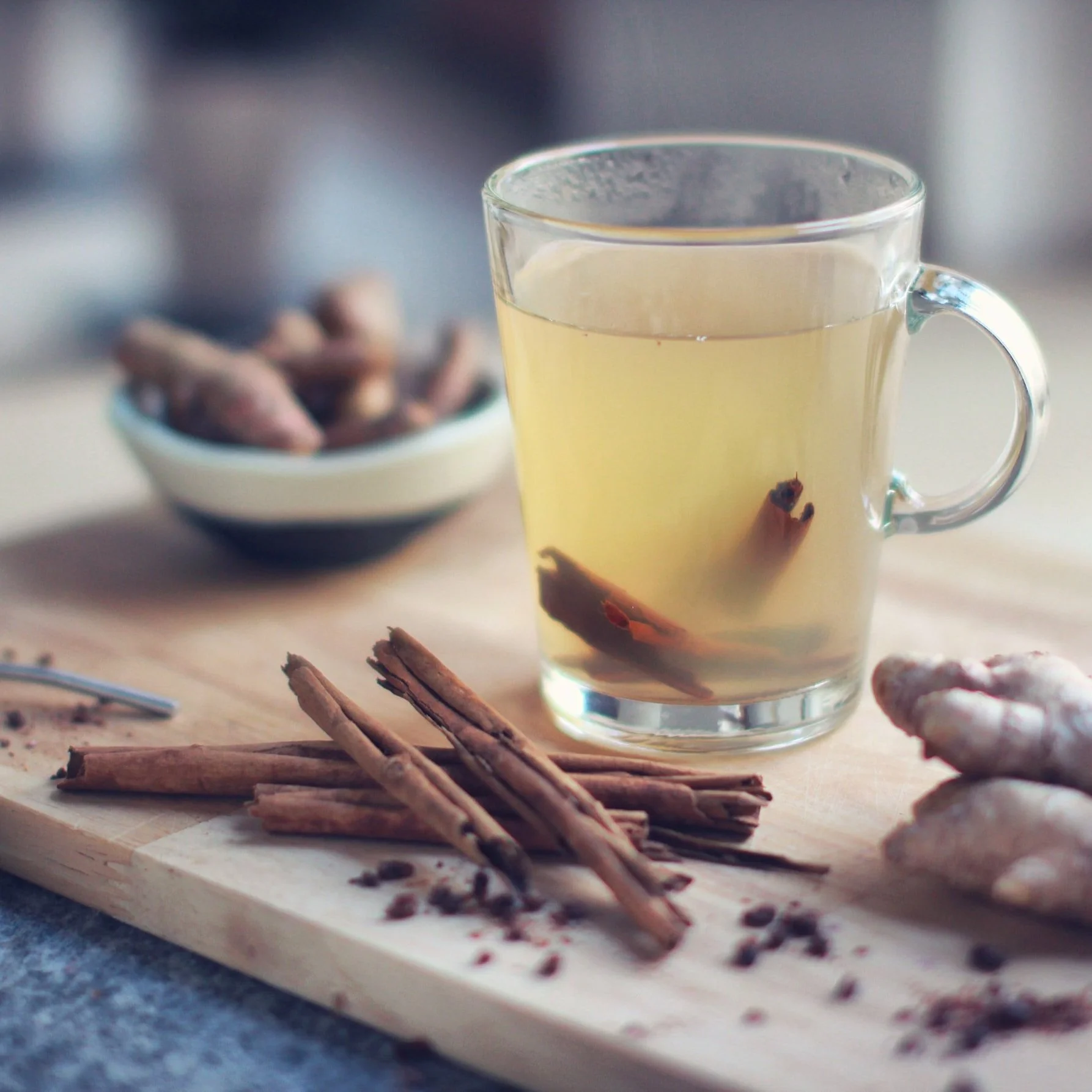Te Jenjamn: A Guide to Traditional Haitian Tea
Haiti, a country renowned for its rich culture and history, is not typically associated with tea. However, despite its reputation as a coffee-growing nation, Haiti also boasts a long-standing tradition of tea consumption. Haitian tea, with its unique blend of local herbs and spices, is a testament to the country's diverse cultural influences and is gaining popularity both domestically and internationally. In this article, we will explore the origins, ingredients, and cultural significance of Haitian tea, as well as the health benefits associated with this traditional beverage.
Explore Traditional Haitian Tea: Tea in Haiti
In this article, we will explore the origins, ingredients, and cultural significance of Haitian tea, as well as the health benefits associated with this traditional beverage.
What is Haitian Tea
Haitian tea, often referred to as "Te Jenjamn" is a traditional beverage made from a combination of locally sourced herbs, spices, and other natural ingredients. "Te Jenjamn" is a Creole phrase that roughly translates to "ginger tea." The exact composition of Haitian tea can vary depending on the region and the individual preparing it, but it typically includes a mix of plants such as lemongrass, cinnamon, mint, ginger, and thyme. These ingredients are steeped in hot water to create a flavorful and aromatic infusion that can be enjoyed on its own or with added sweeteners such as honey or sugar. Haitian tea is known for its unique taste and the many health benefits that are attributed to its natural ingredients.
What is the Most Popular Tea in Haiti
The most popular tea in Haiti is a tisane rather than a true tea from the Camellia sinensis plant (the tea plant). It is a traditional herbal tea made from a variety of local herbs and spices. This tisane (known as Te Jenjamn) can be found in almost every household in Haiti and is often used for its medicinal properties, as well as its delicious taste. The exact blend of ingredients used in Haitian tea can vary depending on the region and individual preferences, but common herbs and spices used include lemongrass, cinnamon, mint, ginger, and thyme. This herbal tea is typically enjoyed hot, and can be sweetened with honey or sugar to taste. Te Jenjamn is an integral part of Haitian culture and is a beloved beverage enjoyed by many Haitians.
The Benefits of Haitian Tea
Haitian tea made with traditional herbs contains a variety of health benefits due to the natural properties of these ingredients. Here are some of the benefits associated with each:
Ginger: Ginger has anti-inflammatory properties and is known to help relieve nausea, reduce muscle pain and soreness, and lower blood sugar levels. It is also rich in antioxidants and may have anti-cancer properties.
Cinnamon: Cinnamon has anti-inflammatory and anti-bacterial properties and may help lower blood sugar levels, improve heart health, and boost brain function. It is also rich in antioxidants and may have anti-cancer properties.
Thyme: Thyme is a natural expectorant and may help relieve cough and bronchitis symptoms. It also has anti-inflammatory and anti-bacterial properties and may help improve digestion and boost the immune system.
Mint: Mint is known for its ability to relieve indigestion and stomach discomfort. It also has anti-inflammatory and anti-bacterial properties and may help relieve headaches and improve brain function.
Lemongrass: Lemongrass tea may provide a variety of health benefits, including improving digestion, reducing inflammation, and promoting relaxation.
In combination, these ingredients can create a flavorful and healthy beverage that can provide a variety of health benefits. However, it's important to note that the exact health benefits may vary depending on the individual and the amount and frequency of consumption.
The Side Effects of Haitian Tea
While Haitian tea made with these traditional ingredients is generally safe and well-tolerated by most people, there are some potential side effects to consider. Here are a few:
Ginger: Ginger may cause stomach upset, diarrhea, and heartburn in some people, especially when consumed in large amounts. It may also interact with certain medications, so it's important to talk to your healthcare provider if you are taking any medications.
Cinnamon: Cinnamon may cause allergic reactions in some people, and consuming large amounts may cause liver damage. It may also interact with certain medications, so it's important to talk to your healthcare provider if you are taking any medications.
Thyme: Thyme may cause allergic reactions in some people. It may also interact with certain medications, so it's important to talk to your healthcare provider if you are taking any medications.
Mint: Mint may cause allergic reactions in some people. It may also interact with certain medications, so it's important to talk to your healthcare provider if you are taking any medications.
Lemongrass: Consuming excessive amounts of lemongrass tea may lead to side effects such as stomach discomfort, headaches, and allergic reactions in some individuals.
It's also important to note that consuming large amounts of any herbal tea, including Haitian tea, may have negative effects on some individuals. As with any new food or beverage, it's always a good idea to start with small amounts and gradually increase your intake to see how your body responds. If you experience any adverse effects, stop consuming the tea and talk to your healthcare provider.
Te Jenjamn: Traditional Haitian Tea
Traditional Haitian teas are made with ginger, cinnamon, lemongrass, and other herbs and spices, and are often described as being spicy, warming, and comforting.
What Does Haitian Tea Taste Like?
The taste of Haitian tea can vary depending on the specific recipe and ingredients used, but many Haitian teas are known for their strong and bold flavors. Teas made with ginger, lemongrass, and other herbs and spices are often described as being spicy, warming, and comforting. They may also have a slightly sweet or tangy flavor, depending on whether or not they are sweetened with honey or other sweeteners. Overall, Haitian tea is a unique and flavorful beverage that can be enjoyed hot or cold.
How to Make Haitian Tea With Ginger
Here's a great way to make Haitian tea with ginger and other spices:
Ingredients:
4 cups of water
1 piece of fresh ginger root, peeled and grated (about 2 tbsp)
2 cinnamon sticks
3-4 sprigs of fresh thyme
2-3 sprigs of fresh mint
2-3 tbsp of honey - sweeten to taste (optional)
Instructions:
In a medium-sized pot, bring 4 cups of water to a boil.
Add the grated ginger, cinnamon sticks, thyme, and mint to the pot.
Reduce the heat to medium-low and let the mixture simmer for about 10-15 minutes. The longer you let it simmer, the stronger the flavor will be.
Strain the mixture through a fine mesh strainer or cheesecloth to remove the solids.
If desired, add honey to taste and stir until it's fully dissolved.
Serve hot and enjoy your delicious Haitian tea!
Note: You can adjust the amounts of ginger, cinnamon, and other spices to your liking, depending on your personal taste preferences. Additionally, you can experiment with different herbs and spices to create your own unique blend of Haitian tea.
How to Make Traditional Haitian Tea With Fresh Ginger and Lemongrass
Here's another recipe for traditional Haitian tea using fresh ginger and fresh lemongrass:
Ingredients:
4 cups of water
1 piece of fresh ginger root, peeled and grated (about 2 tbsp)
1 stalk of fresh lemongrass, cut into small pieces
2-3 tbsp of honey - sweeten to taste (optional)
Instructions:
In a medium-sized pot, bring 4 cups of water to a boil.
Add the sliced ginger and lemongrass pieces to the pot.
Reduce the heat to medium-low and let the mixture simmer for about 10-15 minutes. The longer you let it simmer, the stronger the flavor will be.
Strain the mixture through a fine mesh strainer or cheesecloth to remove the solids.
If desired, add honey to taste and stir until it's fully dissolved.
Serve hot and enjoy your delicious traditional Haitian tea!
Note: You can adjust the amounts of ginger and lemongrass to your liking, depending on your personal taste preferences. Additionally, you can experiment with different herbs and spices to create your own unique blend of Haitian tea.
Traditional Haitian Desserts
Haiti has a rich culinary heritage, and there are several traditional desserts that are enjoyed in the country. Here are a few examples that may pair perfectly with your freshly brewed Haitian tea:
Haitian Cake (Gateau Haitien): This is a rich and decadent cake made with grated sweetened coconut, condensed milk, and spices like nutmeg and cinnamon. It is often served at special occasions like weddings and birthdays.
Sweet Potato Pudding (Pain Patate): This dessert is made with mashed sweet potatoes, coconut milk, spices, and sweetened condensed milk. It is usually baked in the oven and served warm.
Mango and Papaya Salad (Salad Mango ak Papaye): This is a refreshing and light dessert made with fresh mango and papaya, drizzled with a simple syrup made with lime juice and sugar.
Haitian Peanut Butter Fudge (Pen Patat): This is a sweet and nutty fudge made with peanut butter, sweetened condensed milk, and spices like cinnamon and nutmeg.
Coconut Fritters (Accra): These are crispy fritters made with grated coconut, flour, and spices. They are usually served as a snack or dessert.
These traditional Haitian desserts are just a few examples of the many delicious treats that can be found in the country.
Tea in Haiti: Final Thoughts
Haitian tea, also known as Te Jenjamn, is a beloved traditional beverage in Haiti that is known for its warming and comforting properties. Made with a variety of herbs and spices like ginger, lemongrass, cinnamon, thyme, and mint, Haitian tea offers a unique and bold flavor profile that is both spicy and soothing. Whether enjoyed as a morning pick-me-up, an afternoon treat, or an evening relaxation beverage, Haitian tea is a delicious and nutritious way to experience the flavors and culture of this vibrant country. So why not try making a cup of Te Jenjamn at home and experience the warmth and comfort of Haitian tea for yourself?
Read More Articles About Tea
It is important to note that any health advice provided in this article is for informational purposes only and should not be taken as medical advice. Always consult with a qualified healthcare professional before making any changes to your diet, exercise routine, or overall health. The information provided is not a substitute for professional medical advice.





